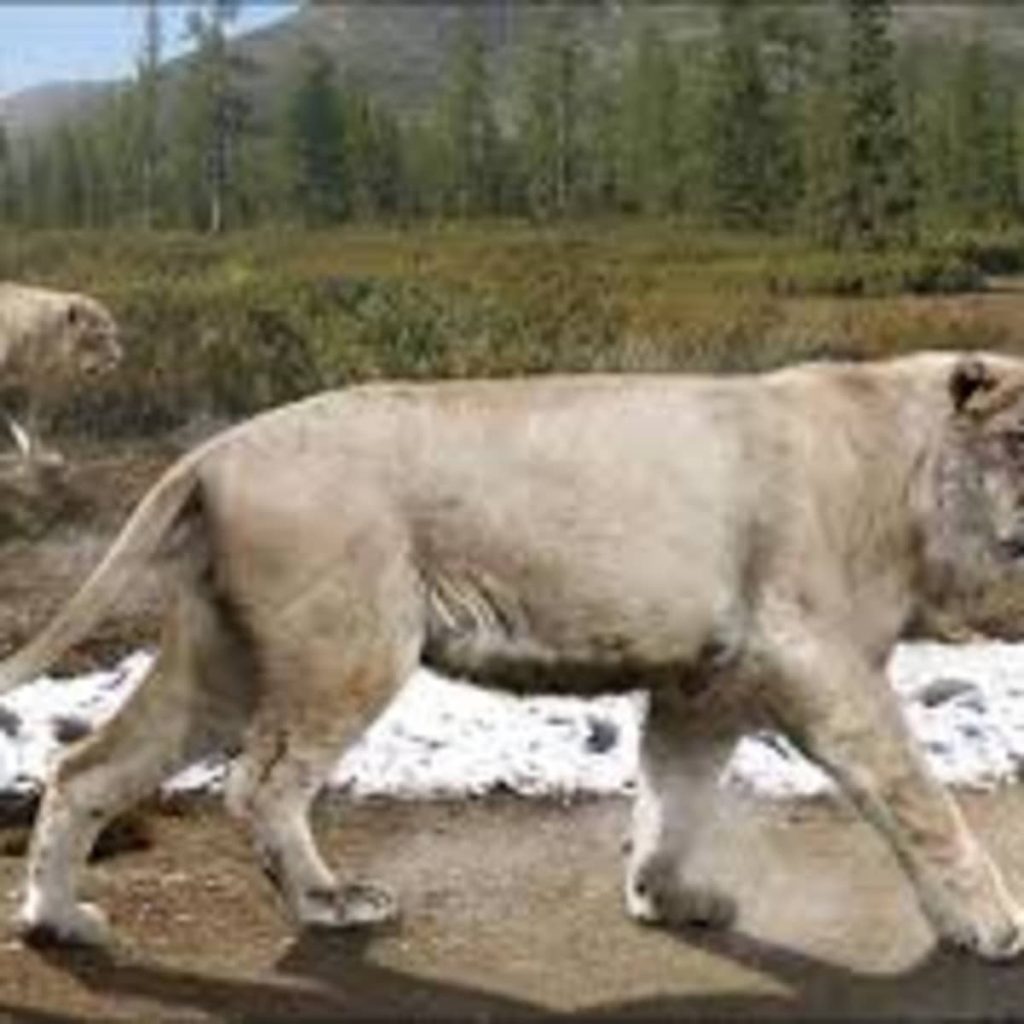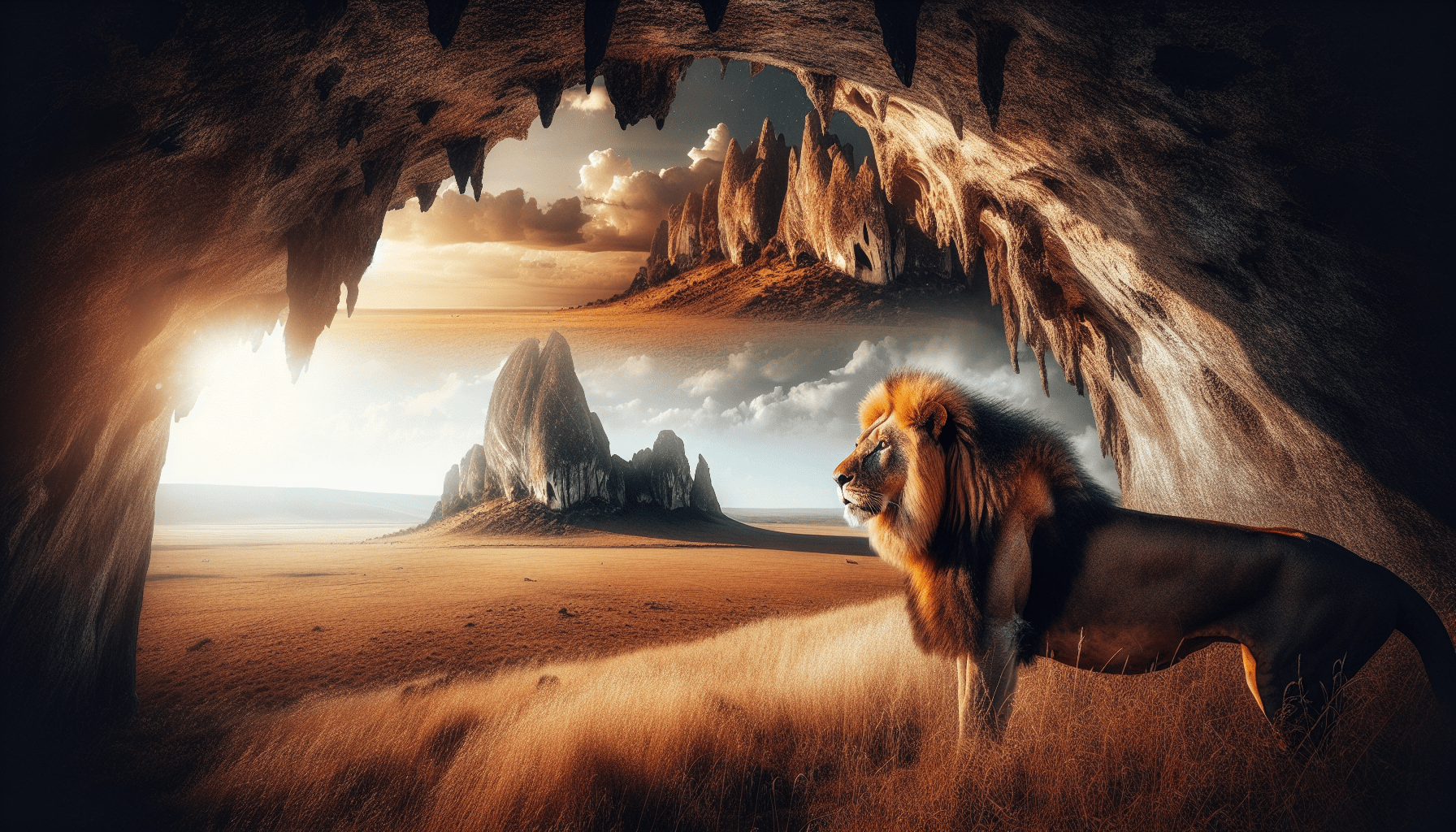Have you ever wondered why lions don’t live in caves like some other animals do? While lions may seek shelter in rocky outcroppings or dense vegetation, they typically prefer to establish their dens in open savannas to keep a watchful eye on their surroundings. This behavior is due to their social structure, hunting habits, and territorial instincts. Lions are fascinating creatures that have adapted to thrive in the grasslands rather than seeking refuge in dark, enclosed spaces.
Why Don’t Lions Live In Caves?
Hey there! Have you ever wondered why lions don’t live in caves like other animals? Let’s dive into the fascinating world of lions and caves to uncover the reasons behind this intriguing question.

Understanding Lion Behavior and Habitat
Lions are known as the “king of the jungle,” but they actually live in grasslands and savannas, not forests or jungles. Their natural habitat consists of open plains with sparse vegetation, which allows them to hunt effectively.
Lions are social animals that live in groups called prides. These prides typically consist of related females, their offspring, and a few adult males. The pride relies on teamwork to hunt for food and protect their territory.
The Role of Caves in Lion Behavior
While lions may not live in caves, they do occasionally use them for shelter or as den sites for their young. However, caves are not a permanent residence for lions because they prefer open spaces that provide ample visibility and room to roam.
In the wild, lions are more likely to seek shelter under trees, bushes, or rocky outcroppings rather than inside caves. This behavior is driven by their need to remain vigilant against potential threats and to have easy access to hunting grounds.
Factors Influencing Lion Habitat Selection
Several factors influence where lions choose to establish their territories and build their dens. These include availability of food, water sources, competition with other predators, and suitable shelter options.
Food Availability and Hunting Strategy
Lions are opportunistic predators that primarily prey on large herbivores such as zebras, wildebeests, and buffalo. They require access to sufficient prey populations to sustain their pride and ensure their survival.
In habitats where prey populations are abundant and accessible, lions are more likely to establish their territories and remain in those areas. Caves are not essential for hunting success, as lions rely on their speed, agility, and teamwork to catch their prey in open terrain.
Water Sources and Territorial Behavior
Water is essential for the survival of lions, particularly during dry seasons when natural water sources may become scarce. Lions will establish territories near reliable water sources to ensure they have access to drinking water for themselves and their young.
Lions are territorial animals that defend their territories from rival prides and other predators. By selecting territories with access to water and suitable hunting grounds, lions can maintain control over their domain and ensure their survival.
Competition with Other Predators
In some regions, lions must compete with other predators such as hyenas, leopards, and cheetahs for food and territory. Lions may avoid caves as potential den sites to reduce the risk of confrontation with these competing predators.
Lions and hyenas, in particular, have a long-standing rivalry and will avoid direct conflicts whenever possible. By selecting open habitats over caves, lions can maintain visibility and awareness of nearby threats, including rival predators.
The Adaptability of Lions to Diverse Habitats
Despite their preference for open grasslands and savannas, lions are remarkably adaptable animals that can thrive in a variety of habitats. From the arid deserts of Namibia to the dense forests of India, lions have demonstrated their ability to survive and reproduce in diverse environments.
Case Study: Lions in the Gir Forest of India
One of the most unique populations of lions can be found in the Gir Forest of India, where the Asiatic lion subspecies (Panthera leo persica) roams. Unlike their African counterparts, these lions have adapted to living in a mixed habitat of tropical dry deciduous forests and open grasslands.
The presence of caves in the Gir Forest provides potential den sites for lionesses to give birth and raise their cubs. However, these caves are not utilized as permanent shelters, as the lions prefer to roam freely in their territory and hunt for prey in the surrounding landscape.
Conservation Challenges Facing Lions in the Wild
Lions face numerous conservation challenges in the wild, including habitat loss, human-wildlife conflict, poaching, and disease outbreaks. These threats have resulted in declining lion populations across Africa and Asia, prompting conservation efforts to protect these iconic animals.
Impact of Habitat Loss and Fragmentation
As human populations expand and encroach upon lion habitats, natural landscapes are being fragmented and degraded. This loss of suitable habitat limits the availability of food, water, and shelter resources for lions, making it harder for them to survive and reproduce.
Conservation organizations are working to mitigate the effects of habitat loss by creating protected areas, implementing land-use planning strategies, and raising awareness about the importance of preserving lion habitats. By safeguarding key habitats and corridors, lions can have a better chance of thriving in the wild.
Human-Wildlife Conflict and Coexistence
Conflicts between humans and lions often arise when lions prey on livestock or come into close contact with local communities. In retaliation for livestock depredation or perceived threats to human safety, lions may be killed or persecuted, further endangering their populations.
To address human-wildlife conflict, conservationists are implementing innovative strategies such as predator-proof enclosures, community-based conservation programs, and livestock compensation schemes. These initiatives aim to promote coexistence between humans and lions while reducing conflicts and enhancing local support for conservation efforts.
Poaching and Illegal Wildlife Trade
Poaching poses a significant threat to lions as they are targeted for their bones, skins, and body parts, which are used in traditional medicine and cultural practices. Illegal wildlife trade networks facilitate the poaching and trafficking of lion products, putting additional pressure on already vulnerable populations.
Law enforcement agencies, conservation groups, and government authorities are working together to combat poaching and wildlife trafficking through increased patrols, intelligence gathering, and anti-poaching operations. By disrupting illegal trade networks and holding poachers accountable, efforts to protect lions from exploitation can be strengthened.
Conclusion: Lions and Caves – Exploring Nature’s Wonders
So, why don’t lions live in caves? As we’ve discovered, lions have evolved to thrive in open grasslands and savannas, where they can hunt, socialize, and maintain their territories effectively. While caves may provide temporary shelter or den sites for lions, they are not a preferred habitat due to their need for visibility, space, and access to resources.
By understanding the behavior, habitat preferences, and conservation challenges facing lions, we can appreciate the complex relationship between these majestic predators and their natural environment. Through collective efforts to protect lion populations and their habitats, we can ensure a future where lions continue to roam the wild landscapes, inspiring awe and admiration for generations to come.
Thanks for joining me on this exploration of lions and caves. Remember to keep asking questions, seeking answers, and embracing the wonders of nature all around us. See you next time!


